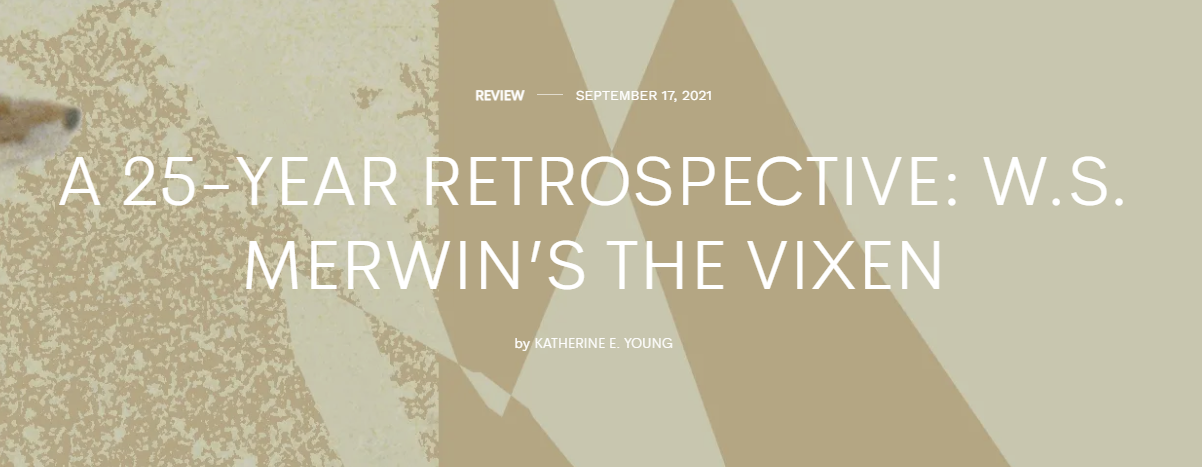Katherine E. Young Reviews Merwin's THE VIXEN for 25 Year Anniversary
25 years after it was originally published, Katherine E. Young looks back on one of Merwin's most underappreciated masterworks

Katherine E. Young's retrospective on W.S. Merwin's The Vixen appears in The Adroit Journal. Her newest collection of poetry is Woman Drinking Absinthe available from Alan Squire Publishing. An excerpt from her essay follows. Read the full review HERE.
Is there such a thing as too much good poetry? My uncle, who made a lifelong habit of sending me copies of each of W.S. Merwin’s books upon publication, thought so. “He writes too much,” my uncle would lament each year when the Nobel Prize for Literature, one of the few major prizes to elude Merwin during his long literary career, was awarded to some other writer. In a career as prolific as Merwin’s—more than fifty books of poetry, prose, and translation, including multiple literary masterpieces—it stands to reason that not every book can be a great one. Right?
Consider Merwin’s 1996 collection, The Vixen. Coming on the heels of Travels: Poems, winner of the 1993 Lenore Marshall Poetry Prize, The Vixen is in many ways a quiet book. While the poems in Travels are set all over the globe and vary considerably in form, length, and even appearance on the page, the sixty-four poems in The Vixen, most of them no longer than a page, follow a single form: a long line that starts at the left margin, followed by a second, indented line (which is sometimes enjambed and sometimes syntactically independent of the preceding line), mimicking the appearance of call-and-response on the printed page. (In his original review of the book for Boston Review, poet and critic Richard Howard called it “one poem in 64 sections.”) The look of the poems is neat, tight, controlled. “Quiet” and “controlled” are not synonymous with “lesser,” of course, and for anyone seeking poems that nourish and challenge, The Vixen offers a rich bounty.
James J. Patterson’s Junk Shop Window on E. Ethelbert Miller’s On the Margin
By Eylie Sasajima To celebrate the upcoming release of Junk Shop Window: Essays on Myth, Life, and Literature, on June 6, ASP’s James J. Patterson was interviewed on E. Ethelbert […]
Reflections on my First AWP; or, Sleepless in SeaTac
ASP Intern and Washington College Senior Eylie Sasajima on Her First AWP Conference
An interview with the late, great Linda Pastan
Along the indifferent corridors / of space, angels could be hiding,” Linda Pastan wrote in her poem “Muse.” ASP honors the legacy of Linda Pastan (1932–2023), a former Poet Laureate of Maryland, who passed away last week. Pastan was the author of the 2018 poetry book A Dog Runs Through It, which won the Towson University Literary Award.


